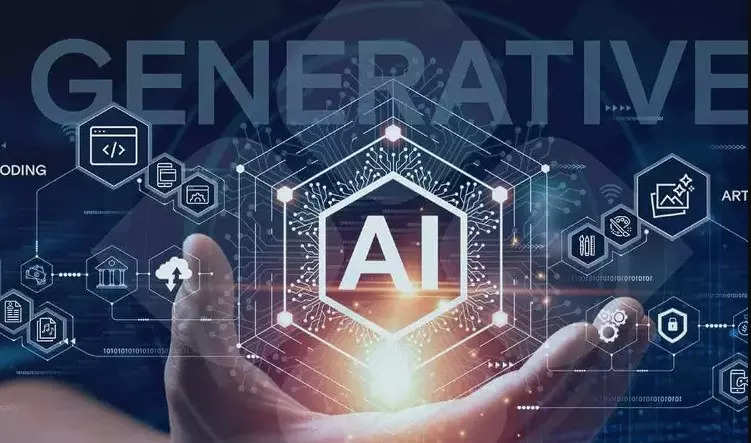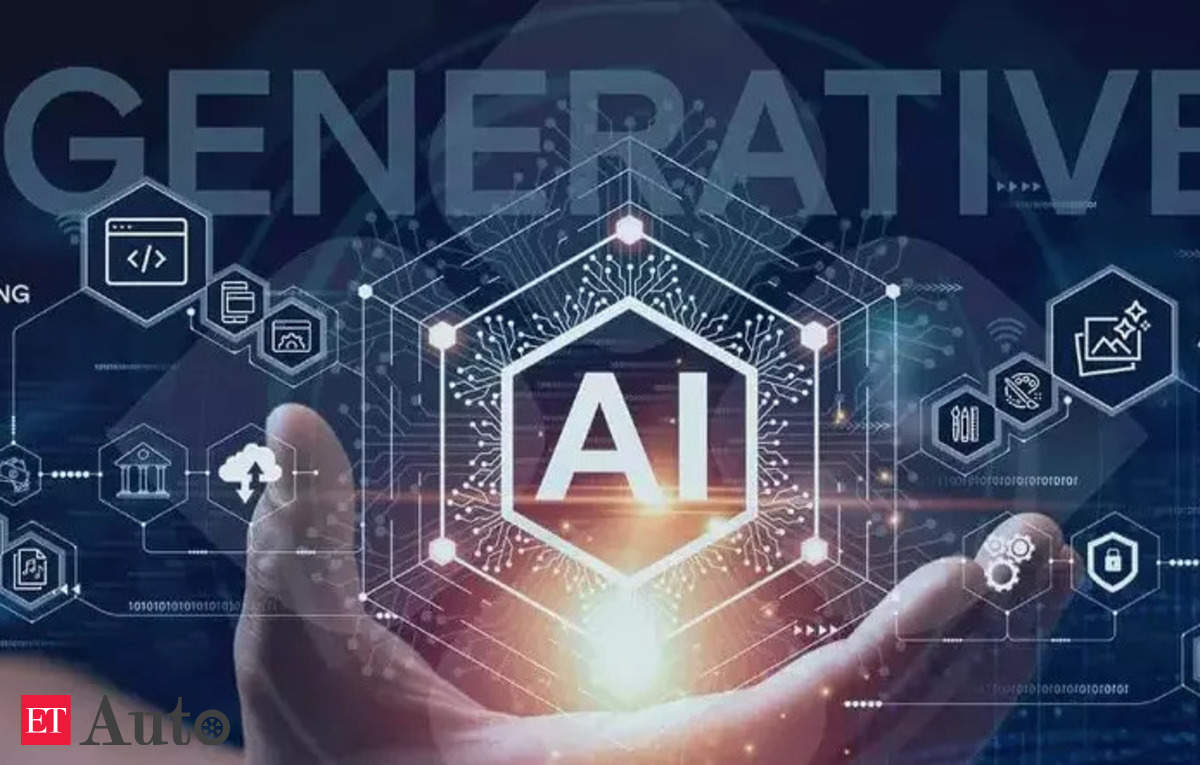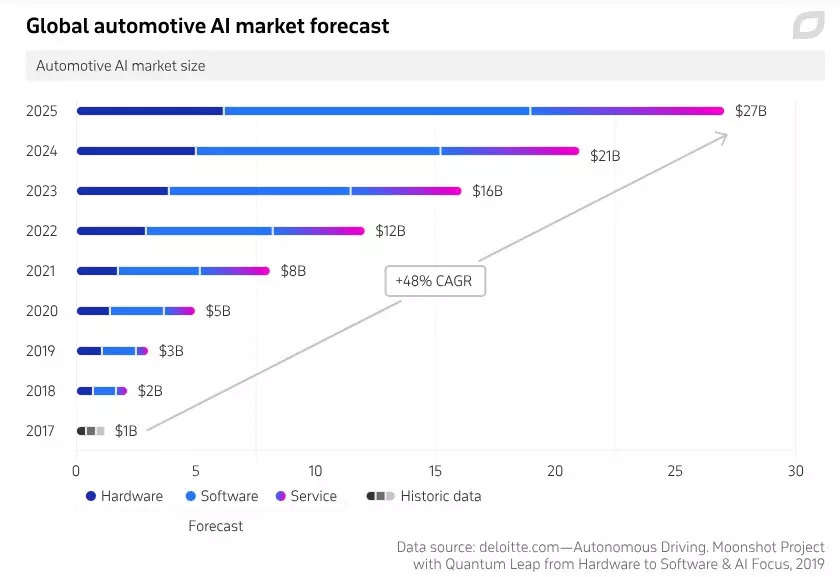
New Delhi: The automotive industry in recent years has seen technological advancements which no one could have ever imagined. It has showcased several new technologies and practiced them in the forefront. Generative AI or Artificial Intelligence is an emerging transformative force, situated at the core of every economic, societal and educational debate now. As per a McKinsey report, with the help of generative AI there can be a reduction of 10%-20% in the development timelines for auto parts. Generative AI is a category of AI Algorithms that produce new outputs based upon the data they have been trained upon and the feedback that came from the earlier outputs. Generative AI produces new content in the form of audio, text, video, images, and more. The applicability of generative AI in the auto industry is there to enhance the efficiency, innovation, customer experience and a lot more.
Most common example of Generative AI that is highly talked about nowadays is ChatGPT. Google has also recently launched its counter to the ChatGPT known as Bard AI.
Every day new generative AI are released, thus when we talk about the auto industry, counting about generative AI developments is hard to remember.
Use cases of Generative AI in autonomous vehicles
Generative AI can be felt everywhere in the automotive industry, thus acting as the building blocks of realistic simulations that permits the AVs to adapt to the set environment.
To build an AV, there is a necessity of reliable sensor data for training, where generative AI can be applied to represent the real-world situations, thus eradicating the requirement for expensive and time consuming field experiments.
Generative AI which helps in creating a real-world environment, can contribute in conducting practical algorithms, which acts as a training model for vehicles.
Customization: Generative AI models have the potential to anticipate the user’s choices and preferences. This technology through its tools automatically adapts to the consumer’s preferences, patterns through analyzing the frequently used features, making it frequently appear on the navigation panels. It creates a personalized or customized experience for the user.
Voice-Assistance: It links the vehicle infotainment system to provide voice-assistance and multiple voice-functionalities. One of the best examples of User personalization or Customization of AV is the in-car personal assistants that have the potential to talk and converse with the user. This potential lies in the future technology driven cars, you can imagine them as Siri or Alexa.
Anticipative vehicle maintenance and services: Generative AI works in conjunction with Internet of Things (IoT) to deliver the anticipative maintenance for your vehicle. Recently, the number of vehicles integrated with IoT technology is rising thus the sensors which are embedded in the vehicles can hand over real time data about the vehicle’s condition.
Through the Generative AI the data sets can be analyzed to detect the abnormalities and inform the user about the same.
Autonomous driving and safety concerns
Generative AI plays an integral role in safety, especially in the development of autonomous vehicles. When you require to train an autonomous vehicle system it demands for innumerable driving situations thus it also incorporates the dangerous and exceptional scenarios.
Generative AI can produce realistic simulations and thus lead to the enhanced safety of their autonomous vehicle driving algorithms before they get into the practical usage on the public roads. Gen AI can also simulate real time solutions to current problems and thus helping in decision-making for the autonomous vehicles.
It can provide appropriate predictions about the behavior of the road users thus informing the user to enhance the safety of users and pedestrians. Generative AI has the ability to navigate the complex driving scenarios to make the user’s experience much safer and smoother.
Some common examples of Generative AI
Generative AI is commonly seen in the passenger vehicle segment as leading brands like Toyota, BMW, Tesla, Mercedes-Benz, and many more have started integrating generative AI in their vehicles.
Continental: During the IAA Mobility 2023, Continental announced its partnership with Google Clouds, making the company the first automotive supplier to integrate google clouds directly into the vehicles.
At IAA Mobility 2023, Philipp von Hirschheydt, member of Continental’s Executive Board and head of the Automotive group sector, said, “Together with Google, we are bringing artificial intelligence to the vehicle cockpit and are creating an intuitive experience for drivers.” “This is how our vision of software-defined vehicles starts to become a reality.”
Daimler: This emerging technology is expected to enter the MHCV market in coming years. One such name is Daimler, the leading commercial vehicle company, which is aiming to integrate AI soon in their vehicles. “We are working on AI models which are going to give insights about the data which are not humanly possible.“ Anshum Jain, COO Daimler, told ETAuto.
Toyota: To amplify the product designer’s ability, Toyota Research Institute (TRI) introduced Generative AI technique. This will enhance the text-to-image publicly available Gen AI tools, to include initial sketches and engineering limitations into its enhancing process of creativity. Generative AI technique thus minimizes the iterations to amplify the designs by considering the engineering’s outlook, which not only saves time but also makes the work more efficient.
Tesla: Gen AI Technology plays an integral role in the Advanced Driver Assistance System (ADAS). Tesla’s known autopilot system, ustilizes Generative AI models to understand and explore a wider range of driving situations, therefore trying to enhance its capabilities.
Mercedes-Benz: As part of generative AI, Mercedes has brought up a GPT model into more than 900k cars which are part of a beta program. You can access this model with the help of the company’s voice assistant, which allows drivers to inquire about the destination location and answer all your questions.
Potential of Generative AI
Generative AI can aid in providing competitive advantage among the companies, thus contributing to newer innovations in our country. It has the potential to dig deeper into the problems which human resource has constraints over. It has the ability to modify the anatomy of work, as it augments the ability of a human resource due to its dormant tendency. It automates some of the tasks of human resources thus making the resource more productive.
“While we are at an early stage, the potential (for generative AI) is huge for auto companies in India – from newer business models to customer engagement and more. To unleash the true potential of gen AI, people, processes and enabling technologies need to work in tandem” Shaveta Wadhera Jain, MD – Industrial & Mobility, Accenture in India told ET Auto.










